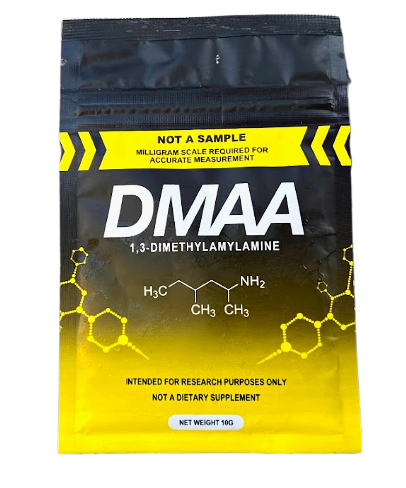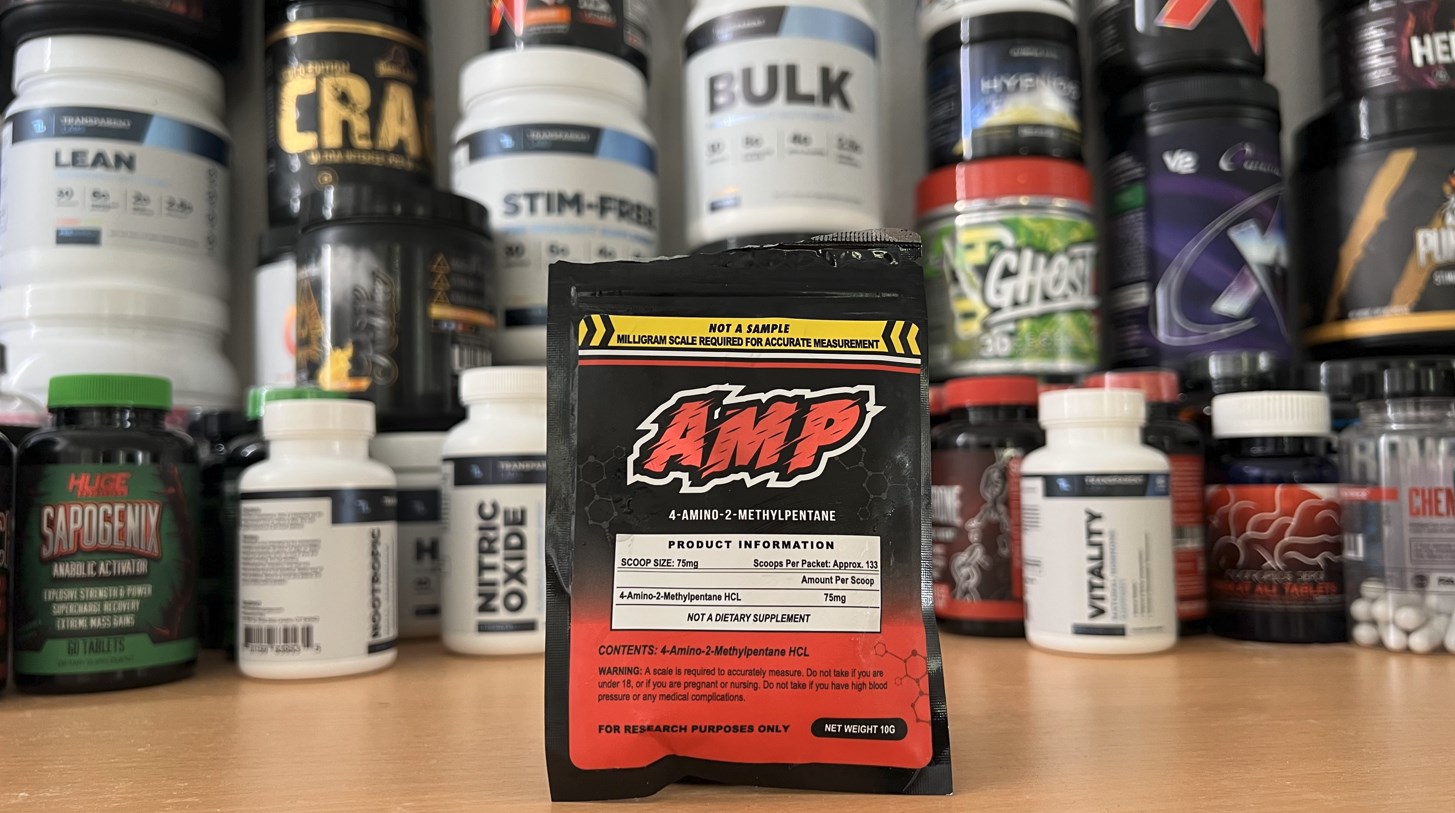
1,3-Dimethylamylamine (DMAA) and 1,3-Dimethylbutylamine (DMBA) are popular dietary and pre-workout supplements.
They are known for their stimulant effects, enhancing physical and mental energy.
However, they differ in their specific effects: DMAA is known for boosting mental energy, while DMBA is associated with increasing physical energy.
DMBA has an "urgency" type of energy, while DMAA provides a more focused and mental energy boost.
DMAA (1,3-dimethylamylamine) and DMBA (1,3-dimethylbutylamine) are popular pre-workout supplements due to their stimulant properties.
However, they differ in their effects, with DMAA being more associated with mental energy and focus, while DMBA provides more physical energy and a sense of urgency.

DMAA, known as methylhexanamine, is a compound often found in pre-workout supplements and weight-loss products.
It was originally developed as a nasal decongestant but has gained popularity in the fitness community for its stimulating effects.
The benefits of DMAA are primarily related to its stimulant effects.
It has been found to enhance focus and energy, making it a popular ingredient in pre-workout supplements.
Some studies have also suggested that DMAA may aid in weight loss, although more research is needed.
In terms of dosage, the amount of DMAA used in studies varies.
However, it's important to note that DMAA is a potent compound, and starting with a lower dose is recommended to assess tolerance.

DMBA is a relatively new ingredient in the world of dietary supplements.
It's similar in structure to DMAA, leading many to believe it may have similar effects.
However, there are some key differences.
DMBA is known for its ability to increase physical energy.
This makes it a popular choice for pre-workout supplements, as it can help to enhance workout performance.
There's also some evidence to suggest that DMBA may aid in weight loss, although more research is needed in this area.
As with DMAA, the dosage of DMBA used in studies varies.
It's a potent compound, and starting with a lower dose is recommended to assess tolerance.
According to a study conducted among fitness studio visitors in Mainz, Germany, about 20.5% of PWB users specifically sought out substances such as DMBA.
These individuals were typically interested in enhancing their sports performance and mental performance.

While DMAA and DMBA are known for their stimulant effects, they differ in the type of energy they provide.
DMAA is known for boosting mental energy, helping to improve focus and concentration.
On the other hand, DMBA is associated with increasing physical energy, providing an "urgency" type of energy that can enhance workout performance.
DMBA (1,3-Dimethylbutylamine) DMBA is a stimulant often used in pre-workout supplements to boost energy levels and improve focus.
It's similar to DMAA and is believed to work by increasing dopamine and noradrenaline, which can lead to increased energy, focus, and euphoria.
Benefits:
Side Effects:
DMAA (1,3-Dimethylamylamine) DMAA is a powerful stimulant that can increase energy and focus. It's often used in pre-workout and weight-loss supplements.
Benefits:
Side Effects:

DMAA and DMBA are stimulants often found in PWBs and other nutritional supplements. They're used for their potential to enhance physical and mental performance. However, they also share the risk of potential harm, with both substances associated with serious adverse effects.
Despite their similarities, DMAA and DMBA are not identical. They differ in chemical structure, which may lead to differences in their effects and safety profiles. DMAA has been studied more extensively, but both substances require further research to understand their benefits and risks fully.
What is DMAA?
DMAA, or 1,3-dimethylamylamine, is a synthetic stimulant often found in pre-workout supplements and weight loss products. It's known for boosting mental energy and focus.
What is DMBA?
DMBA, or 1,3-dimethylbutylamine, is a stimulant similar to DMAA. It's often used in fitness supplements to increase physical energy and create a sense of urgency during workouts.
What are the benefits of DMAA?
DMAA is known for enhancing mental energy, focus, and concentration. It can also increase physical performance and aid in weight loss.
What are the benefits of DMBA?
DMBA is praised for its ability to boost physical energy, making it a popular choice for pre-workout supplements. It also creates a sense of urgency, which can enhance workout intensity.
What are the side effects of DMAA?
DMAA can cause side effects such as increased heart rate, high blood pressure, and potentially serious cardiovascular problems. It's also been linked to neurological symptoms like headaches and tremors.
What are the side effects of DMBA?
Like DMAA, DMBA can cause cardiovascular side effects like increased heart rate and high blood pressure. Other potential side effects include nervousness, irritability, and difficulty sleeping.
Is DMAA banned?
Yes, DMAA has been banned by several health organizations, including the FDA, due to concerns about its safety.
Is DMBA banned?
DMBA is also banned by several health organizations, including the FDA, due to similar safety concerns as DMAA.
Can I take DMAA and DMBA together?
Taking DMAA and DMBA together is not recommended due to the potential for serious side effects, especially related to cardiovascular health.
What are safer alternatives to DMAA and DMBA?
Safer alternatives to DMAA and DMBA include natural stimulants like caffeine and non-stimulant pre-workout ingredients like beta-alanine and citrulline malate.
DMAA and DMBA are powerful stimulants that can enhance mental and physical energy.
However, they differ in their specific effects, with DMAA providing more mental energy and DMBA providing more physical energy.
As always, using these supplements responsibly and starting with a lower dose to assess tolerance is important.
Useful Links
 About FitFrek
About FitFrekFitFrek operates as an independent platform, offering comprehensive workouts, programs, routines, guides, and unbiased reviews to accelerate your progress. We pride ourselves on our honesty, delivering straightforward and candid insights. FitFrek does not offer medical advice, diagnosis, or treatment services.